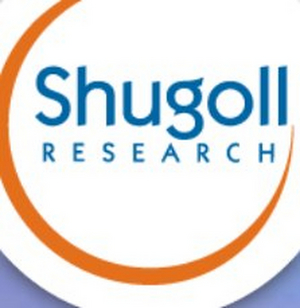Survey Finds Many Theatergoers Nationally Will Not Immediately Return to Theaters When They Reopen

Shugoll Research, a national marketing research company in Bethesda, Maryland, is releasing a Phase III study of theatergoers and their intent to return to the theater when it reopens after the coronavirus pandemic. This phase focuses on a national sample of theatergoers. Previously released were a Phase I study of Washington, DC and a Phase II study of New York/Broadway.
There is much conversation across the country during the pandemic on when theaters will reopen. Whenever that eventually is, will theatergoers across the country be ready to occupy the seats? This study suggests that many theatergoers look forward to returning to something they love, but most won't do so immediately. It will be more of a trickle back, with some waiting a significant amount of time before attending again. This is based on the following findings:
• Only just over a third of theatergoers (36%) say they are very likely to return during the new season when theaters reopen while about 1 in 6 (16%) are very unlikely. Even if theaters capture all of those very likely to return and perhaps a third of those with some reservations about returning and score in the middle of the scale (46%), this suggests an initial loss of about half the former audience.
• Most theatergoers initially will take a "wait and see" attitude about how quickly they return during the new season. Almost two thirds (63%) suggest they will probably wait at least a few months or more before attending and a significant number (29%) say they will wait about 6 months or more. Less than a fifth (18%) think they will attend right away if there is something they want to see. This will provide significant challenges to theaters across the country counting on a needed influx of earned income after most spring and summer seasons were cancelled.
Increasing the challenge for theaters are the intentions of two important subgroups. One group is those age 55 and older who are a key theatergoing demographic and also the vulnerable to the virus. Only 21% of them are very likely to return in the new season while about the same percentage (23%) are very unlikely. In addition, 45% of this demographic think they will wait 6 months or more before returning and they are much more likely to cut back the frequency of attending (45%) than increase it (11%).
Things are slightly more positive among a second key segment, frequent theatergoers (4 times a year or more). Encouraging is that many frequent attenders plan to go to the theater more after reopening (41%) compared to previous years than less (28%). Also, among this group a larger percentage (48%) are very likely to return when theaters reopen for the new season. But it is discouraging that this still means over half are not very likely to return upon reopening. Also on the negative side, almost 6 in 10 frequent theatergoers (57%) will probably wait a few months or more before attending and a quarter (25%) will wait a full 6 months or more.
Study author Mark Shugoll says, "These findings are problematic for the nation's theaters counting on a needed influx of earned income. The hoped for resources won't come back quickly."
While economic factors have significant impact on the likelihood of returning to theaters (45% fear a recession, 45% indicate their disposable income is down, 37% say their investment portfolio was reduced, 37% took a salary cut or lost their job), it is health concerns that give theatergoers the most pause about returning. Around 6 in 10 are concerned there may be a second wave of the virus (65%), that a vaccine won't yet be available when theaters reopen (57%) and that their health may be at risk from attending (57%). Thus, while health issues are a primary concern about going back to shows, economic pressures are not inconsequential, making up a one, two punch for theaters.
What would most increase interest in returning is if a vaccine did exist (64%), something, of course, well beyond the control of theaters. The most important things theaters have control over and could do to get their customers back more quickly are cleaning and disinfecting before each performance (auditorium, café, restrooms) (50%), if every other seat was left empty for social distancing (46%), having hand sanitizers available throughout the theater (43%), having face masks available (43%), requiring all in the audience to wear facemasks (41%) and if your temperature was taken at the door before allowing entry (39%). Interestingly, despite their health concerns about returning, they would be more likely to do so if prices were lower (44%). This suggests the possibility of a "welcome back" sale to trigger revenues, perhaps coordinated by the appropriate industry associations.
Dr. Shugoll adds, "The data in this study are very much impacted by the point in time it was conducted. As the pandemic progresses, views likely will change. Shugoll Research plans to track these attitudes over time." Dr. Shugoll continues, "The results of this research may be disappointing to theater management across the country, but it gives them real data to use in their planning. Knowing what to expect, rather than just using anecdotal information, will lead to better decisions about reopening."
This study was conducted using a national panel. A total of 401 surveys of residents from the 35 largest metropolitan areas (excluding Washington, DC and New York City which surveyed separately) were completed between April 17 and 24, 2020. Data are accurate within +/- 5% at a 95% confidence level. Participants were required to attend at least two professional theater productions in a typical year, at least one of which must be a professional production other than on Broadway or a touring Broadway production.
Click HERE for the full report.
Comments
Videos

